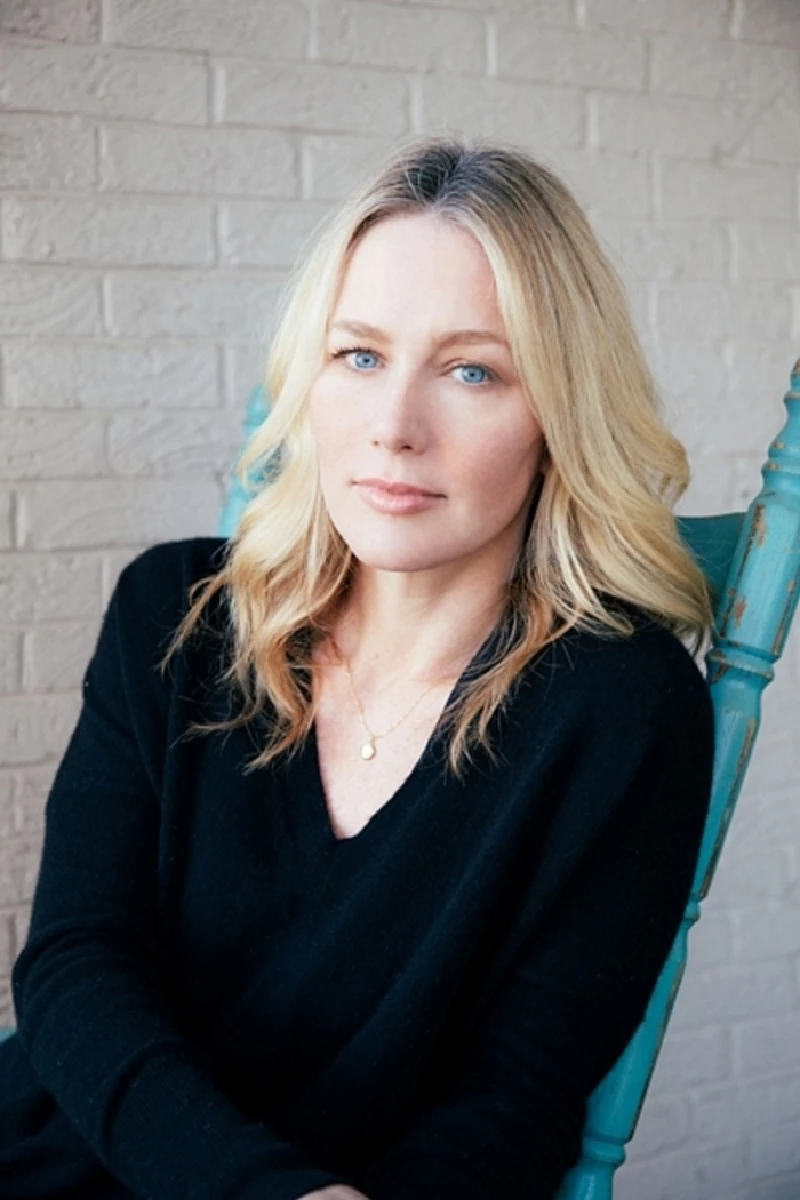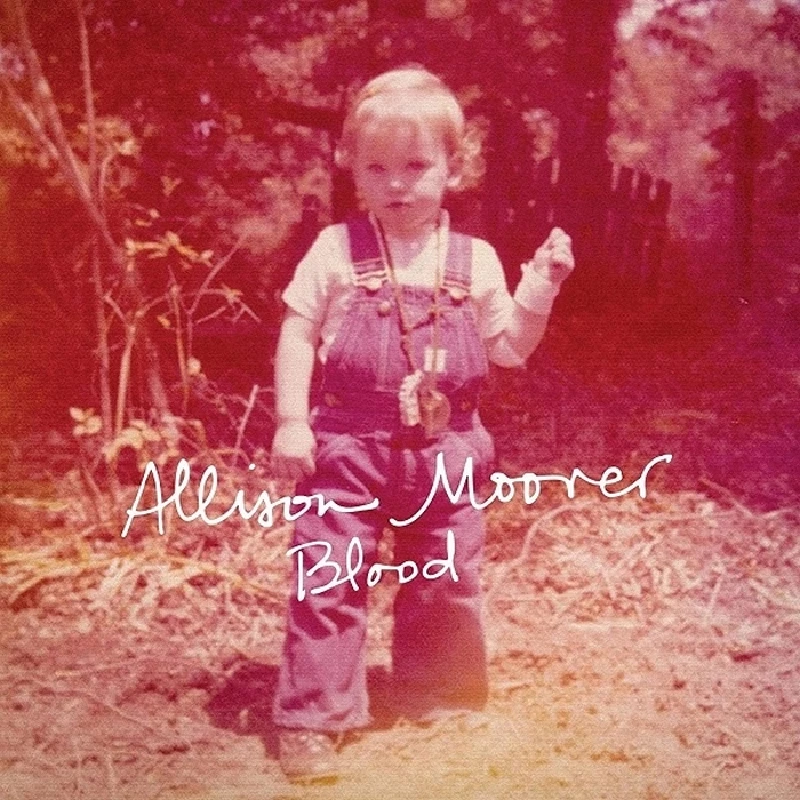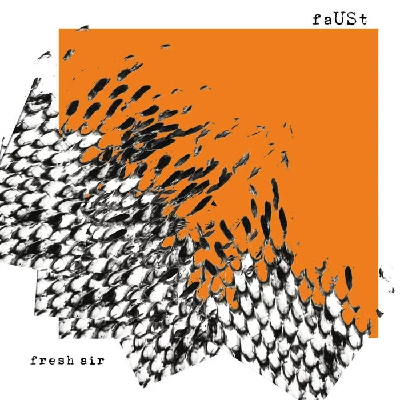Allison Moorer - Interview
by Lisa Torem
published: 27 / 5 / 2020

intro
Singer-songwriter, Alabama-born Allison Moorer talks to Lisa Torem about her new album ‘Blood’ and her memoir of the same title.
Since the release of ‘A Soft Place to Fall,’ which was nominated for an Academy Award for Best Original Song in 1999, singer-songwriter Allison Moorer has hit the ground running. Her ten—album discography has spiked major interest amongst her peers; consequently, her original music has been covered by the likes of Trisha Yearwood, Kenny Chesney, Miranda Lambert and former husband, singer-songwriter Steve Earle. The Alabama-born performer began her career by singing back=up with her sister, singer/songwriter Shelby Lynne in Nashville and on tour. Shortly thereafter, she got signed to her first major label. During that time, ballad ‘Tumbling Down’ appeared on the soundtrack of American film, 'The Rookie' (2002). In 2019, she acted as co-producer on the Hayes Carll album, ‘What It Is’. Last year was also a landmark year for Moorer, as she penned both her first memoir and most recent album, ‘Blood’. In this Pennyblackmusic interview, Ms. Moorer communicates candidly about her repertoire choices, one-off collaborations and her new role as author. PB: Two ballads on ‘Blood’ were previously produced. ‘Cold, Cold Earth’ first appeared on your second album, ‘The Hardest Part,’; the title-song ‘Blood’ first appeared on 2015’s ‘Down to Believing’. Why was it important for you to reimagine these songs specifically for ‘Blood’? AM: When I first recorded ‘Cold, Cold Earth,’ I decided to make it a hidden track on the album, ‘The Hardest Part,’ which was a song cycle inspired by my parents’ relationship. I decided that it was time to bring the song into the open and let it be heard fully and without any shrouding. I had to be ready to do that, and I wasn’t, until I was. Writing the memoir had a lot to do with that. ‘Blood,’ went on the record because it felt thematically correct and I wrote it for my sister. PB: Multi-instrumentalist/producer Kenny Greenberg plays pedal steel, bass and guitar on ‘Blood,’ and you, too, play a variety of instruments. Given those skill sets, how did you narrow down the final arrangement choices? AM: We wanted ‘Blood’ to be a mostly quiet and stripped-down album. The problem was with being able to play all those instruments practicing restraint. But with that ideal in mind, we made the choices that we felt best suited the songs and the overall feel we wanted. PB: Thematically, ‘Cold, Cold Earth’ and ‘The Rock and the Hill’ draw from nature, but differ dramatically in terms of style. Can you walk us through the songwriting process of creating these tunes? AM: ‘Cold, Cold Earth’ was written in the style of a classic country folk ballad. It tells a story, beginning to end. ‘The Rock and the Hill’ is work-song-inspired and draws more on emotional touchstones than telling a story from the beginning to the end. It’s more about the feeling than a linear approach to a lyric. PB: ‘Heal’ was a co-write between you and Mary Gauthier, who is also renowned for conveying lyrical truths. Was this your first experience co-writing with Mary? How did that collaboration work? Idea, first? Chords? Melody? AM: Mary and I had never written together before, but we are very close friends. I had the idea very close to when I was set to go into the studio to record, and I thought she was the perfect person to write ‘Heal’ with me. Turns out I was right. I had the hook and an idea of what I wanted it to be about, then I called her to ask if she’d help me finish it. Luckily she said yes. PB: On your last album, 2017’s ‘Not Dark Yet,’ you sang and wrote a song with your sister, Shelby Lynne, entitled ‘Is it Too Much?’ In addition, the album celebrates covers by A-listers including Dylan, Cave, Cobain and Haggard. Two questions: Critics and fans gave a thumbs up to that original and wondered why it took so many years for the two of you to collaborate. Was this a one-off or will you continue to write with Shelby? Secondly, how did you narrow down the list of covers? AM: 1) Art making takes the time that it takes. If you rush it, it usually isn’t good. My sister and I do things when we feel the time is right and not before. For now, it’s a one-off. We’ll see what happens as we have no dates on the calendar or plans to do anything else just yet. 2) I came up with ideas, Shelby came up with ideas, and we threw them all in a pile, tried some things, and went with what felt right. PB: When looking back over your recording history, your storytelling consistently reveals depth, candour and a strong sense of hopefulness: ‘A Soft Place to Fall’: “Things that seemed to matter seems so small when you’re looking for a soft place to fall” and on ‘Send Down an Angel’: “Send down an angel from the blue/ send down an angel to get me through….” At other times, such as in the the video of ‘Tear Me Apart,’ which is rife with barbed wire and blood, you get straight to the point. How do you generate songwriting ideas? How do you feel your writing has changed over the years? AM: I don't consciously generate songwriting ideas. When you’re in the practice of writing, though, there is no part of life that doesn’t feed itself into the process and work itself into the process and therefore, the end result. My writing has changed a lot since I started, as that’s what happens when you work a lot and stay open and learn from experience and those around you. I am lucky that I have been exposed to amazing songwriters and have learned from some of the very best, and have also been a person who studies good writing, period, in all forms. PB: Last year, you not only completed the recording of ‘Blood’ but completed your memoir of the same title in which you chronicle the trauma you and your sister, Shelby Lynne, endured in 1986. Rather than suffering in silence, you made the brave choice to share your story of your parents’ murder-suicide and your reactions with fans. Has that process led to healing? How challenging was it to translate unspeakable trauma into an accessible art form? AM: Yes, I feel like writing ‘Blood’ and releasing it to the world has had a tremendous healing effect on me and my life and the way I live it. I find very few things in life unspeakable, but many things unfathomable. How we get through those things and put language to them is a process that takes, first, some processing. Then you have to tell it until you tell it in a way that you feel right about. Then you have to massage that way into something that someone else might want to read. Then you have to rewrite, rewrite, and rewrite again. Challenging, yes. Also worth it. What else does a person do in this life but try to live well and do good work? PB: You hold a graduate degree in writing from New York’s New School. Given that accomplishment, can you explain the difference in process between writing in long-form and writing the average short-form song? AM: Ha! No, I cannot explain it. But I will say the two things I feel like I bring to the table from songwriting when writing prose are 1) rhythm. Sentences have a meter just like song lyrics do and they need to fall in a way that is engaging. 2) ear. Some words hit the ear better than others. You wouldn’t necessarily choose the same words when writing a song that you would when writing prose, but it’s important to know which ones to choose in which scenario. It’s an instinct. It can be learned, but it helps to have something in your spine that tells you when you’ve chosen correctly. That can come from a lot of places. I am a southerner, so that gives me a leg up. We speak as if we’re singing to begin with, and we tend to choose highly entertaining and juicy methods of telling a story. PB: The Covid-19 crisis has, among other things, with “shelter-in-place restrictions” created additional barriers for domestic abuse survivors. Many people look up to celebrities, such as yourself, for inspiration during such dark times. Having risen above so much in a relatively short amount of time, what advice can you offer to people in crisis? AM: This crisis has certainly shone a light on the fact that not everyone is safe at home. We have, however, given no one any options past that acknowledgment, which is a shame. My advice to anyone in danger is always RUN, DON’T WALK, but it isn’t that simple anytime, much less now when we’re not supposed to be out and about. I don’t have an answer for someone who is in danger and is quarantined in that situation. It’s harrowing to think about. PB: Thank you.
Band Links:-
http://allisonmoorer.com/https://www.facebook.com/AllisonMoorer/
https://twitter.com/AllisonMoorer
Picture Gallery:-

reviews |
|
Blood (2020) |

|
| Honest and brave new album from Nashville-based singer-songwriter Allison Moorer, released to coincide with her memoir of the same name, which tells of her father's murder of her mother and suicide |
most viewed articles
current edition
Carl Ewens - David Bowie 1964 to 1982 On Track: Every Album, Every SongArmory Show - Interview with Richard Jobson
John McKay - Interview
Colin Blunstone - Thalia Hall, Chicago, 16/7/2025
Bathers - Photoscapes 1
Billie Eilish - O2 Arena, London, 10/7/2025
Loft - Interview
Visor Fest - Valencia, Spain, 26/9/2025...27/9/2025
Sir Tim Rice - Interview
Robert Forster - Interview
previous editions
Manic Street Preachers - (Gig of a Lifetime) Millennium Stadium, Cardiff, December 1999Heavenly - P.U.N.K. Girl EP
Beautiful South - Ten Songs That Made Me Love...
Peter Perrett - In Dreams Begin Responsibilities Interview Part One
Boomtown Rats - Ten Songs That Made Me Love....
Oasis - Oasis, Earl's Court, London, 1995
Coldplay - Wembley Arena. London, 16/8/2022
Trudie Myerscough-Harris - Interview
Prolapse - Interview
Pixies - Ten Songs That Made Me Love...
most viewed reviews
current edition
Davey Woodward - Mumbo in the JumboSick Man of Europe - The Sick Man of Europe
Lucy Spraggan - Other Sides of the Moon
Amy Macdonald - Is This What You've Been Waiting For?
Phew, Erika Kobayashi,, Dieter Moebius - Radium Girls
Suzanne Vega - Flying With Angels
Bush - I Beat Loneliness
Alice Cooper - The Revenge of Alice Cooper
Blueboy - 2
Cynthia Erivo - I Forgive You
Pennyblackmusic Regular Contributors
Adrian Janes
Amanda J. Window
Andrew Twambley
Anthony Dhanendran
Benjamin Howarth
Cila Warncke
Daniel Cressey
Darren Aston
Dastardly
Dave Goodwin
Denzil Watson
Dominic B. Simpson
Eoghan Lyng
Fiona Hutchings
Harry Sherriff
Helen Tipping
Jamie Rowland
John Clarkson
Julie Cruickshank
Kimberly Bright
Lisa Torem
Maarten Schiethart